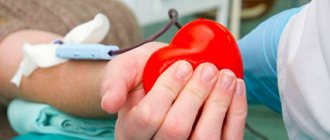After drinking strong espresso, there is a direct effect on the blood vessels and heart, so the pressure changes. Natural coffee beans contain caffeine. It enhances the production of a hormone that is responsible for a good mood and positive emotions. The alkaloid also promotes the development of vigor and improves brain activity. This occurs due to increased blood circulation and dilation of the walls of blood vessels. Strong coffee affects a person's blood pressure. Moreover, jumps in blood pressure readings occur differently for everyone. Next, we will study the issue of coffee and blood pressure in detail.
Effect on blood pressure indicators
Blood pressure in the body depends on many factors, and coffee affects most of them directly. The main active substance in coffee is caffeine, found both in natural grain products and in freeze-dried ones. The only exception is a variety of coffee substitutes that imitate the taste of the drink, but do not contain the active substance.
Caffeine has the effect of an energy drink on the body. The drink needs some time after entering the gastrointestinal tract, after which it is absorbed into the blood, like most of the substances that we take in food. Through the bloodstream, caffeine excites the nervous system and causes vasospasm.
For a person, spasms of such strength are not critical (if you follow the norm for drinking the drink), but narrowed blood vessels lead to changes in blood pressure. This gives a person a feeling of vigor and eliminates drowsiness - exactly the sensations for which they drink coffee.
Changes in blood pressure cause the heart to speed up and work harder. A person who rarely drinks coffee or has overdose of the drink will immediately feel it - all this affects the pulse, raising it.
It is precisely because of the sharp narrowing of blood vessels and increased blood pressure that coffee is strictly not recommended for children - the not yet fully developed vascular system can be damaged by a sharp drop. The same applies to the nervous system, since children do not tolerate nervous excitement caused artificially.
Reasons for the increase after drinking
It is also important to know why coffee affects blood pressure monitor readings. After drinking 2-3 cups of the drink, there is an increased effect on brain activity. Thus, it goes from a resting state to a hyperactive phase, due to which caffeine is often classified as a “psychotropic” drug.
By affecting brain functions, there is a reduction in the release of adenosine, which is necessary for the correct transmission of impulses. Neurons are sharply excited, this lasts for a long time, after which severe exhaustion of the body is possible.
There is also an effect on the adrenal glands, due to which the amount of “stress hormones” in the blood increases. As a rule, their production occurs during stress, anxiety and fear. All this leads to acceleration of the heart, rapid blood circulation, and spasms of the vascular system. A person becomes more active, moves more and blood pressure increases.
Does coffee raise or lower blood pressure?
Spasm of blood vessels, their narrowing and decreased capacity for blood can only lead to increased blood pressure in a person. First of all, people who, due to physiological reasons, have high blood pressure should remember this.
A healthy person should also remember this feature of caffeine if he decides to drink coffee before bed. If you have no problems with sleep, and your cardiovascular system is in perfect order, then this will probably pass without a trace for you. But for most people, drinking coffee at night will not end well. An excited nervous system, high blood pressure and, at best, mild arrhythmia will keep you from falling asleep for a long time.
There is a misconception that only natural coffee greatly increases blood pressure. This is not true - although instant coffee has less caffeine and is of lower quality, its amount is still enough to cause all of the above symptoms. Coffee with milk is also no different, except for its taste.
Coffee and pregnancy
Drinking a coffee drink, especially in large quantities, is extremely undesirable during the period of bearing a child - this leads to a noticeable increase in the fetal heart rate, lowers its pressure and reduces blood flow to the placenta.
If a pregnant woman drinks more than 5-7 standard cups per day, such abuse is fraught with more serious consequences - the risk of miscarriages, stillbirth, premature birth and the birth of children with a low body mass index significantly increases.
We can conclude that with moderate consumption of coffee, it does not lead to any serious vascular or cardiac pathologies in a relatively healthy person, and if coffee does increase blood pressure, it is only slightly and for a short period of time. However, excessive and too frequent use of this drink can be harmful, especially when it comes to a woman carrying a child.
Is it possible to lower blood pressure?
No, It is Immpossible. In any case, caffeine will have the same effect on blood vessels for each person, and not necessarily a negative one. If the standards are observed, coffee does not harm a person, but, on the contrary, acts to his benefit:
- increases performance;
- normalizes the functioning of the heart and other organs of the cardiovascular system if a person initially has low blood pressure ;
- removes salts and excess fluid from the body;
- enriches the body with some unique vitamins and microelements.
You can drink coffee in order to get all these beneficial properties without fear of lowering your blood pressure.
Effect on blood pressure and blood vessels
Caffeine is the main component of this drink, which affects the vascular system. Dependence on it is quite serious, and some scientists even compare it to drug addiction. Thanks to caffeine, blood vessels and arteries expand and contract, so its effect on the body cannot be called unambiguous.
After a cup of coffee, the vascular system of the brain begins to narrow, which normalizes intracranial pressure. Therefore, it is recommended for use by those who suffer from frequent migraines and headaches. They are caused by dilated blood vessels in the head, and thanks to caffeine this goes away, removing both the root cause and its painful consequences.
Natural coffee also helps the gastrointestinal tract vessels, narrowing them, which helps normalize and speed up digestion. Therefore, it is not surprising that after this drink there is a desire for a snack. But the vascular system of muscle tissue expands from coffee, and doctors do not know why this happens. It is because of this that they do not advise drinking more than 3 cups of strong drink a day, otherwise quite serious harm can be done to the body.
There is no need to drink coffee in the afternoon, because the cells of the cerebral cortex will be inhibited, which will lead to problems falling asleep.
It has been proven that a drink drunk a couple of hours before going to bed leads to insomnia in every second person. Because of this, the next day the amount of coffee consumed increases, as people feel tired.
Important! Caffeine is an alkaloid that, in small doses, gives vigor, but in large doses, it depresses vital activity. . The vasomotor center of the body is very susceptible to the influence of caffeine, which leads to the dilation or constriction of blood vessels
Hypertensive patients should know that as the coronary vessels of the heart enlarge, blood flow will also become faster. This leads to a redistribution of the body's blood flow and an increase in blood pressure.
The vasomotor center of the body is very susceptible to the influence of caffeine, which leads to the expansion or narrowing of blood vessels. Hypertensive patients should know that as the coronary vessels of the heart enlarge, blood flow will also become faster. This leads to a redistribution of the body's blood flow and an increase in blood pressure.
You feel cheerful, in a good mood, fatigue becomes invisible, and your performance, physical and mental strength increase. But such a pronounced effect can only happen if low blood pressure is the norm for the patient.
Use for hypertension
Hypertension is a disease, most often chronic, in which a person’s blood pressure is constantly elevated. This may be due to diseases of the blood vessels, nervous system, age-related changes, overexertion, etc.
Once diagnosed with hypertension, a person receives many restrictions in his diet. Now he should not abuse salty foods, alcohol, foods containing nitrates, and, most importantly, all foods containing caffeine.
To the question “is it possible to drink coffee with high blood pressure, even hypertension,” there is a clear answer – it is strictly not recommended. Of course, nothing fatal will happen from one cup of coffee with a hypertensive patient, there will be no attacks or any obvious symptoms of exacerbation of the disease. But each person is individual.
If for one person suffering from hypertension a cup of coffee caused only a slight arrhythmia and a barely noticeable increase in blood pressure, for another it could end worse. Possible consequences include:
- noise in the head, loss of coordination, dizziness;
- nausea caused by strong pressure in the blood vessels;
- redness;
- pain in the heart area;
- a severe attack in which the pressure will no longer decrease on its own, or with the help of medications, you will have to use the help of doctors.
Hypertension can be kept under control. If you adhere to all medical prescriptions and do not provoke the body to frequently increase already unstable blood pressure, the disease will cause you minimal trouble
Drinking coffee with high blood pressure, which is tormenting you right now, is stupid. Caffeine will act on the blood vessels, narrowing them even more, preventing the free passage of blood. The heart, which will have to work harder and harder in this mode, may not be able to withstand it and fail.
Heart pain - sharp or aching pain in the left side of the chest, very unpleasant. If you want to drink coffee while having problems with high blood pressure, first think about the possible symptoms.
Is your blood pressure going down?
There are studies in which volunteers who drink 2 cups a day begin to experience a gradual decrease in their levels, even though they have hypertension. Reviews from doctors about this are as follows:
- Long-term use of caffeine leads to addiction, after which the body begins to respond less actively to the standard dose. It turns out that the body does not perceive coffee in any way, the tonometer readings do not increase and even a slight reduction is possible.
- Coffee affects different people differently; for some it lowers blood pressure, for others it increases it. This factor depends on genetic characteristics, additional diseases, and the nervous system.
Although the drink can reduce blood pressure, it is not recommended to use it to lower blood pressure.
Use for hypotension
Blood pressure can also be chronically low - this is hypotension, which occurs less frequently than hypertension, which is standard for the modern sedentary population, but often enough to be mentioned separately.
With low blood pressure, doctors give recommendations that are exactly the opposite of those given for hypertension, which is logical.
Among these recommendations are references to caffeinated foods and drinks. Drinking coffee with chronically low blood pressure is not only allowed, but even recommended. The main thing for the patient is not to confuse high blood pressure with low blood pressure, based only on your feelings.
Main symptoms:
- pale skin;
- weakness;
- decreased performance, intellectual abilities;
- unnaturally rapid fatigue;
- pain in the heart area;
- dizziness, sometimes nausea.
As you can see, some symptoms overlap. In order not to mistakenly assess your condition and ultimately take harmful measures, you need accurate knowledge of your blood pressure norm, as well as a working device for measuring pressure (tonometer).
Impact on blood pressure levels
A stereotype has developed: I drank coffee and my blood pressure went up. But this is not always the case. Is your blood pressure always stable? A cup of espresso easily tones the body: blood vessels will dilate and a weak diuretic effect will appear. As a result, the pressure will drop slightly. This happens to 15% of those who like to indulge in a tasty and invigorating drink.
For persistent hypotension with perpetually low blood pressure, coffee is a real salvation. Blood pressure normalizes, and symptoms of weakness recede, giving a feeling of complete health. Drinking the drink will not harm such people, but will only help. The main thing is to know when to stop.
But if the doctor has diagnosed hypertension, then it is better to exclude this product from the diet. This drink is detrimental to stabilizing blood pressure. Drinking caffeine raises blood pressure for a long time.
How does it affect blood pressure?
The health of hypertensive patients responds worst to the aromatic drink. One cup of coffee – and blood pressure increases, albeit slightly, but for a very long time. Normalization of pressure occurs only over time or after taking the pill. It is better for such people to forget about the coffee ceremony.
If the pressure is always normal (120/70; 110/60; 130/80), then drinking espresso will not change the readings on the tonometer. Coffee has no effect on the body or blood pressure levels.
But coffee fights hypotension very effectively, giving vigor and increasing blood pressure. What else? Weakness and bad mood go away. Many hypotensive people cheat by raising their blood pressure not only with a grain drink, but also with treats that contain more than enough of it: chocolate, Coca-Cola and tonics.
They say that coffee with cognac does not increase blood pressure levels. Why? Cognac lowers the tone of the vascular wall, and blood pressure decreases. But at the same time, the heart rhythm begins to become capricious, and the pressure can rise sharply. Alcohol is also very toxic to the liver.
In general, a cup or two of coffee with a small portion of cognac will not do any harm at all.
How much does coffee raise blood pressure?
As already mentioned, the drink does not have the same effect on everyone, which is why researchers have not yet been able to say exactly about the harm or benefit of the drink on the increase or decrease in blood pressure.
If you drink coffee, how will your blood pressure behave? In people with healthy hearts and blood vessels, blood pressure rises after 2-3 servings of coffee:
- upper (systolic) blood pressure – by 8-10 units;
- lower (diastolic) - by 5-7 units.
This continues for 1-3 hours, and is true only if a person does not constantly replenish the “reserve of vigor”.
Caffeine activates the brain and the release of stress hormones, blood vessels become toned, and the heart begins to beat faster. The survey also affected people with problematic blood pressure. After a cup of coffee, they began to complain of chest tightness and vasospasm.
At what pressure is it contraindicated?
This question has repeatedly become the topic of scientific experiments. And here are the results. Do you have a tendency to have high blood pressure? It is better to forget about frequent consumption of invigorating drinks. A cup of espresso sometimes results in a stroke or heart attack.
But how do you understand that a person is hypertensive? The diagnosis is usually made by a cardiologist or internist.
Just remember: pressure surges occur after hard work, sports activity, or emotional experience. People owe the increase in blood pressure to excess weight, heredity, and also to pathologies of the kidneys and thyroid gland.
When should you sound the alarm? If during the day the pressure does not drop below 140/90.
Be sure to read: Coffee - the idol of many or a veiled enemy
How to understand that a fragrant drink has affected your blood pressure? After drinking a cup, the face turned red, forgetfulness and headache appeared, and sometimes weakness and even nausea.
But the tradition of drinking natural coffee is not the cause of hypertension. Even doctors have no doubts about this fact.
Is the blood pressure reading consistently lower than 130/85? A cup of aromatic and invigorating will not harm. But if the threshold is constantly exceeded, give up this drink and drink herbal teas, compotes and juices.
A drink made from coffee beans is useful because it reduces the risks of developing cancer, diabetes, atherosclerosis and asthma, increases metabolism and weight loss.
During pregnancy
Pregnancy is a special, albeit natural, state of the female body. Most of the forces, including those intended to support the mother's immunity, are now almost completely transferred to the developing fetus. A woman will endure an increase in blood pressure in such conditions much worse than in a normal state.
There is no complete ban on drinking coffee during pregnancy; instead, there is a permissible limit for a woman to consume caffeine for one day - 200 mg. If this norm is violated, blood pressure may rise not only in the pregnant woman, but also in the fetus, which is still completely dependent on the stable functioning of the maternal systems.
Excessive coffee consumption can lead to an attack, during which the chances of harming the child increase significantly. If necessary, a pregnant woman can take up to 500 mg. caffeine per day, but in no case on an ongoing basis, only in the form of an isolated case.
The difference between natural and freeze-dried?
No modern equipment or qualifications of chemists who carefully monitor the process of making instant coffee can replace a natural product. The imitation can be of very high quality, even ideal for the average consumer, but anyone who has at least once tried real ground coffee from naturally grown beans will never again confuse it with a surrogate.
There is nothing wrong with instant coffee; it fulfills its main functions (the effect of an energy drink, and in the case of a high-quality product, a good imitation of taste). The methods for producing artificial coffee are very different, since the demand is huge, which means the list of manufacturers who supply it to the shelves is huge.
It is quite expensive to imitate natural coffee in composition, so some manufacturers save money. As a result of these savings, instant coffee is usually less strong than natural coffee.
This is even beneficial for people suffering from hypertension. A cup of instant coffee will cause less harm than the same cup brewed with a natural base. There is no need to hope for this difference.
Firstly, in artificial coffee (especially cheap) the manufacturer may use harmful additives that may hit the body harder than caffeine. Secondly, this difference is very insignificant and at a dose exceeding the minimum it will cease to matter.
How should hypertensive patients drink coffee?
Is it possible to drink coffee if you have hypertension? Scientists have answered this question positively, but you need to be careful and attentive to your health. There are certain rules that people with high blood pressure should follow:
- You should never consume caffeine on an empty stomach, but should do so after a snack. So the effect will be stronger, and this will lead to a jump in blood pressure. In addition, in the morning you need to drink the drink only 1 hour after the person gets out of bed. It is in the morning that a dose of caffeine has a strong effect on the body.
- If you have hypertension, you should drink coffee no more than 2 times a day.
- After a hypertensive patient has consumed a portion of an invigorating drink, he should not be in the heat, should not begin physical activity and should not make sudden movements. It is better for a person to rest a little after drinking coffee, take a walk in the fresh air, then there will be no dangerous consequences for a hypertensive patient.
- People with high blood pressure should consume only natural (preferably freshly ground) products and should not drink instant coffee. It contains more caffeine, and also various chemicals.
- For hypertensive patients, it is recommended to drink a coffee drink with various additives, for example, milk, lemon, cream. This will help reduce the effects of caffeine. But it is important to add less sugar, as it can also increase blood pressure.
Useful video
Additional information about the effects of coffee on the human body can be found in the video below:
If you suffer from high blood pressure, coffee consumption will have to be reduced to a complete minimum, and in severe, life-threatening cases, eliminated completely. Health is much more important than satisfying the taste buds. Even coffee addicts eventually break their habit, just like any other.
Set your priorities correctly and do not load your cardiovascular system with caffeine, destroying it.
How does coffee affect blood pressure?
Caffeine has been known for several centuries as one of the most accessible substances that can increase human performance. By affecting the nervous system, caffeine causes vasospasm and reduces the amount of adenosine. Adenosine is a sedative that prepares the body for sleep.
Caffeine is a natural energy drink that has an stimulating effect due to the replacement of adenosine with adrenaline.
By consuming 2–3 cups per day, a person notices a lack of drowsiness and the ability to work even after a short sleep.
However, behind this seemingly positive effect there are a number of serious changes within the body that lead to various deviations:
- vasodilation;
- increased heart rate, possible tingling in the chest area;
- increased blood pressure levels;
- increased acidity of gastric juice.
Coffee drinks are strictly contraindicated if you have heart disease or stomach problems.
The effect of coffee on blood pressure is not so clear. It is known that in most cases, 2-3 cups a day still increases both lower and upper blood pressure by 7-10 units, however, this rule still does not apply to some people.
You should not overuse the aromatic drink. The invigorating effect lasts only 1–2 hours, and with increasing “experience” it completely disappears.
Intracranial pressure
If, with elevated blood pressure, it is possible to periodically treat yourself to a cup of coffee drink, then high intracranial pressure and caffeine consumption are incompatible.
Hypertension involves permanent spasms of blood vessels, leading to headaches and other health problems. Coffee also works. Together, these two factors can provoke an immediate deterioration in well-being. Thus, ICP is an absolute contraindication to drinking caffeinated beverages.
Can coffee lower blood pressure?
Caffeine and blood pressure have been shown in numerous experiments to be closely related. In most cases, the indicators remain within the normal range or increase slightly for a short period of time. A mild attack of hypotension occurs only in every 5 drinkers of the invigorating drink. Doctors explain this phenomenon as follows:
- Constant abuse of caffeine leads to addiction in the body. It is no longer able to have the same effect, so in rare cases there is a slight drop in blood pressure.
- The human body has a gene that is responsible for processing caffeine. Due to individual characteristics, the degree of splitting differs in each case. Some people need to drink up to 2-3 cups for the pressure to increase slightly, while for others it completely drops, as if it were an addictive effect.
Both cases of low blood pressure are associated with the diuretic property of the drink, which reduces the volume of fluid in the body. Thanks to this effect, it is possible to reduce the amount of circulating blood and provoke mild hypotension.
Does it increase blood pressure?
The effect of coffee on blood pressure has been studied well enough to understand its mechanism of action. The main culprit is caffeine, which is the main component of the drink. It has the property of irritating the nervous system when entering the body, thereby reducing the feeling of fatigue and drowsiness. If the concentration of the substance is high enough, the blood vessels begin to constrict, which leads to an increase in the heart rate. Against this background, blood pressure may well rise.
If you drink coffee regularly, you are more likely to reduce adenosine metabolism. This element takes part in falling asleep and reducing the body’s activity closer to sleep. In its absence, a person could increase his ability to work up to several days without rest, gradually destroying himself.
Abusing caffeine can increase the level of adrenal hormone production. Excessive amounts of adrenaline is one of the reasons why blood pressure rises.
Arterial hypertension is especially common in people who are predisposed to hypertension or suffer from it. For the most part, the results increase if you take 2-3 cups of coffee a day. There is no significant reaction to one glass of drink. Exactly how much pressure will increase depends on the person’s condition and the amount of caffeine consumed.
One of the most unpleasant and common mixtures is nicotine and coffee. Their combined effect contributes to a significant increase in the load on the heart muscle due to vasospasm and decreased elasticity of the coronary arteries. The problem is explained by the increased exposure to caffeine from a smoked cigarette, as a result of which the risk of complications increases by 2-3 times.
Research shows that coffee lowers blood pressure
Three fairly large-scale studies were conducted around the world to determine whether coffee can increase or decrease blood pressure with long-term consumption. The difficulty of such studies is that it is necessary to monitor the condition of people for at least 10 years, or conduct surveys and compare data on health status with lifestyle, taking into account also concomitant diseases, standard of living, bad habits and much more.
- French scientists studied the health data of 200,000 volunteers aged 16 to 95 for 10 years, periodically recording their blood pressure and heart rate. The subjects who did not drink caffeinated drinks at all had the highest scores. Those who drank 1-4 cups of coffee daily had lower rates, and their blood vessels were in better condition; people were less likely to seek medical help for heart and vascular diseases. Then this study significantly shook the confidence of all doctors that with high blood pressure the amount of caffeine should be reduced.
- Swedish scientists studied the effect of coffee on blood pressure in older people with hypertension, from 50 to 90 years old. Those subjects who drank coffee daily for many years had healthier and more elastic blood vessels, and as a result suffered less from high blood pressure than those who drank coffee only occasionally or did not drink it at all.
- Greek scientists studied the health of people on the island of Ikaria, where more than 30% of residents live to be 90 years old, and more than 50% of them drank 1-2 cups of coffee daily. These people had the healthiest and 5 times more elastic blood vessels compared to those who drank 3-4 cups of a caffeinated drink, or did not drink caffeine at all.
Other beneficial properties of coffee
Caffeine is widely used in medicine. It is used for headaches, as an energy drink when vitality decreases, and can temporarily improve attention and the ability to concentrate. The results of some studies confirm the antioxidant properties of caffeine, including the ability to prevent the development of cancer.
Since the substance has a diuretic effect, it can be used when it is necessary to remove excess fluid from the body (for example, for edema).
Hypotonic patients should take into account that coffee increases blood pressure if consumed in moderation, and if consumed too often, blood pressure decreases.
In addition, natural coffee contains vitamins (B1, B2, PP), micro- and macroelements necessary for the normal functioning of the body. Thus, potassium and iron contained in the aromatic drink help improve heart function and normalize hemoglobin levels in the blood, preventing the development of iron deficiency anemia.
Coffee helps improve mood, and is also a low-calorie drink that reduces a person’s appetite and cravings for sweets, for this reason it is often included in weight loss diets.
With regular consumption of coffee, it increases the sensitivity of cells to insulin, thereby reducing the risk of developing type 2 diabetes. The drink reduces the risk of liver cirrhosis and also has a slight laxative effect, preventing the development of constipation.











